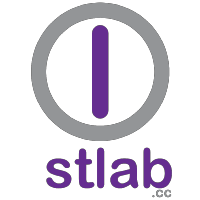CppCon 2017 Keynote Speakers by Jon Kalb

2017 Keynote Speakers
by Jon Kalb
Early bird registration ends on July 7... register today!
From the announcement:
Bjarne Stroustrup
Bjarne is the designer and original implementor of C++. He is a founding member of the ISO C++ standards committee for C++ and a major contributor to modern C++.
He is the author of The C++ Programming Language and Programming: Principles and Practice Using C++.
Bjarne is currently a Managing Director in the technology division of Morgan Stanley in New York City and a Visiting Professor in Computer Science at Columbia University.
Herb Sutter
Herb is the convener (chair) of the ISO C++ standards committee.
He is the best-selling author of hundreds of articles and several books including Exceptional C++ and C++ Coding Standards.
Herb is currently focused on evolving C++ to make it both more powerful and simpler — able to express more in efficient, portable code without relying on proprietary extensions, while also removing needless ceremony and ‘dark corners.’
Lars Knoll
Lars is The Qt Company CTO and Qt Project Chief Maintainer.
He has been working on Qt for more than 17 years starting as a software engineer to later leading the global Qt engineering team in Nokia before the Digia acquisition in October 2012. Lars has been an active member of the KDE community and the architect behind KDE’s HTML rendering library that formed the basis for the WebKit open source project.
Lars holds a PhD in physics from the University of Heidelberg. He is a German national and lives with his family in Oslo.
Matt Godbolt
Matt’s Compiler Explorer project has made his last name both a noun and a verb.
He has been programming for nearly two decades on games, system design, and real-time embedded systems from 8-bit computers up to cutting edge technology on next-generation games consoles.
Matt is currently at DRW in Chicago where he works on cool and exciting secret things.
And 100 more…
These four, and a hundred other C++ experts will be presenting the latest thinking and best practices this September at CppCon. Don’t miss it..



 Have you registered for CppCon 2017 in September?
Have you registered for CppCon 2017 in September? 
 Have you registered for CppCon 2017 in September?
Have you registered for CppCon 2017 in September?